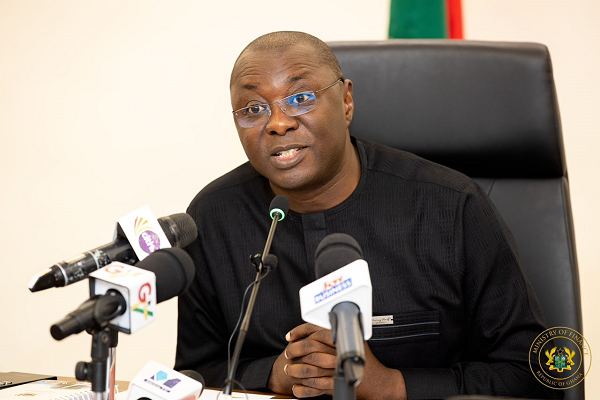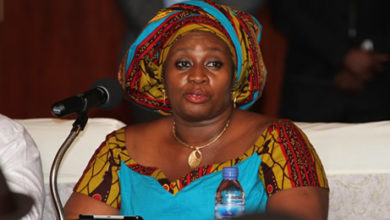Electoral Commission abrogates IT contract with vendor

The Electoral Commission (EC) has abrogated an information technology system contract with its vendor because not only has the vendor left the security and management solely in its hands but it is also very expensive.
The Chairperson of the EC, Mrs Jean Mensa, explained that although the vendor had total monopoly over the system and could shut it down at any time, the EC was required to pay $56 million for upgrade, $ 4 million yearly as maintenance fee and $1.5 million for Internet service delivery.
Mrs Mensa made the disclosure when she led members of the commission and some management members to interact with President Akufo-Addo at the Jubilee House yesterday.
She said the commission was in consultation with others for a more efficient system that would cost half of the $56 million upgrade fee.
The meeting was the last in the series of consultations the commission members embarked on recently, which had already taken them to former Presidents Jerry John Rawlings, John Agyekum Kufuor and John Mahama, as well as the Council of State, political parties, media organisations and some stakeholders.
EC
Mrs Mensa said it was very disturbing that with its 55-member IT Department, the EC could not hold elections on its own without the tacit approval and authority of the IT vendor.
She stated that after abrogating the contract, which was signed in 2012, the EC had been able to, on its own, organise the recent referendum that led to the creation of the new regions, the Ayawaso bye-elections and the recent voter registration without incurring any additional cost.
She described the old machines that were provided by the vendor as bulky and stated that through consultations with EU elections IT technical consultant and other experienced elections management bodies in Africa, the commission would procure, through tender, a more robust, efficient and modern system that it would manage on its own at half the cost of upgrading the old one.
She commended her predecessors at the EC for doing an excellent job in strengthening the electoral processes and implementing reforms from the 2012 Elections Petition which had led to a robust, tight and credible electoral system.
She said they were also undertaking some of the reforms because they inherited a weak institution which was not founded on rules, administrative policies and governance framework, a situation which culminated in the existence of no policies to guide finance, procurement and human resource administration.
“The commission has existed as an election machine,” she said and added that some staff were found to have worked in the same positions for years without promotion, some as long as 17 years, leading to low morale.
She stated that to correct the anomalies, the new commission had put in place policies and guidelines to restructure the system and, in consultation with KPMG, they had undertaken an institutional assessment which had led to the establishment of a framework that governed all activities.
ROPAL
Addressing the issue of the Representative of the People’s Amendment Law (ROPAL), Mrs Mensa said the commission had set up a committee, which included members of the political parties, that had gone around the country soliciting views.
She said the committee had received concerns from all the key stakeholders and that a draft report was ready, so very soon the commission would go to the US to study its method of implementing the law.





